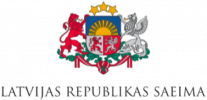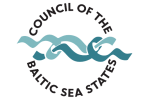On 4 February 2022, the meeting of the Economics, Energy and Innovation Committee of the Baltic Assembly was held in Tallinn, Estonia. During the meeting, parliamentarians, high-level experts and governmental representatives discussed the economic and digital challenges in the Baltic region, Industry 4.0 and 5.0 in the Baltic states and the joint activities to enable digital and green transitions, joint energy infrastructure projects and the Rail Baltica project.
Taking stock of the COVID-19 crisis in the Baltic states
During the first session of the meeting, the parliamentarians, researchers and government representatives discussed all the possibilities that the cooperation of the Baltic states in different areas of economic activity can bring. Chair of the Economics, Energy and Innovation Committee Reinis Znotiņš highlighted that there is a need to understand how to turn the challenges posed by COVID-19 into opportunities for the Baltic states. Authors of the research “The Coronavirus Pandemic and Next Generation EU in the Baltic States” Karsten Staehr and Katri Urke presented the background of the research and what in entails for the Baltic states. Counsellor of Economic Development Department at the Ministry of Economic Affairs and Communications of Estonia Andres Kikas noted that shortage of skilled labour has become a widespread challenge and that attracting talent could be done in cooperation. It was concluded that is important to keep borders open and rules and restrictions as harmonized as possible, as well as to share experiences and best practices with each other to overcome the crisis together and reap the possible benefits.
Joint activities to enable digital and green transitions
During the second session of the meeting, the governmental representatives shared their positions on the topic of Industry 4.0 and 5.0 in the Baltic states and the joint activities to enable digital and green transitions and gave an insight on some good examples of companies that are leaders in the Baltic states and are driving the new industries regionally and even globally. The industrial revolutions are happening much faster now, hence it is very important for policy makers to get ahead of the curve to get the best out of the changing times. Adviser to the Minister of Economy and Innovation of Lithuania Erika Kuročkina added that it is needed to invest more in professional college students, and, in regards to human resources, new innovation agencies should be used to meet the needs of the new industries. “The Baltic Assembly believes that the industry in the Baltic states must lead the digital and green transition. We as decision-makers need to understand the current economic transition and future trends to make informed decisions on the development of future economies of the Baltic states,” Chair of the Economics, Energy and Innovation Committee Reinis Znotiņš stated. He concluded that cooperation instead of competition between the Baltic states is also needed to look for ways to work better together.
Development of joint energy infrastructure projects in the Baltic states
During the third session of the meeting, all participants agreed that in energy matters regional cooperation is the key and that there is a lot of potential for joint energy projects in the Baltic states. Energy expert Reinis Āboltiņš informed that in the future the Baltic states will be seen as a common energy area that is to be perceived seriously, as the future belongs to increasingly smart hybrid energy systems that incorporate a spectrum of technologies and resources. Deputy State Secretary of the Ministry of Economics of Latvia Edijs Šaicāns informed that there sometimes are challenges on finding common ground on different topics, but the Baltic states are always successful in reaching a common understanding in the end.
The meeting of the Baltic Assembly was also attended by the GUAM Parliamentary Assembly. International experience was shared by the Head of the delegation of Azerbaijan to the GUAM Parliamentary Assembly Elnur Allahverdiyev, who informed that joint actions in energy issues are high on the agenda for the GUAM countries. One of the common priorities of cooperation for 2020-2023 for both organisations also includes energy efficiency development and energy sustainability.
During the final session of the meeting, the parliamentarians were informed about the implementation of the Rail Baltica project and the cooperation of the Baltic states within the project.
© Photos by the Riigikogu of the Republic of Estonia



 Print
Print 









